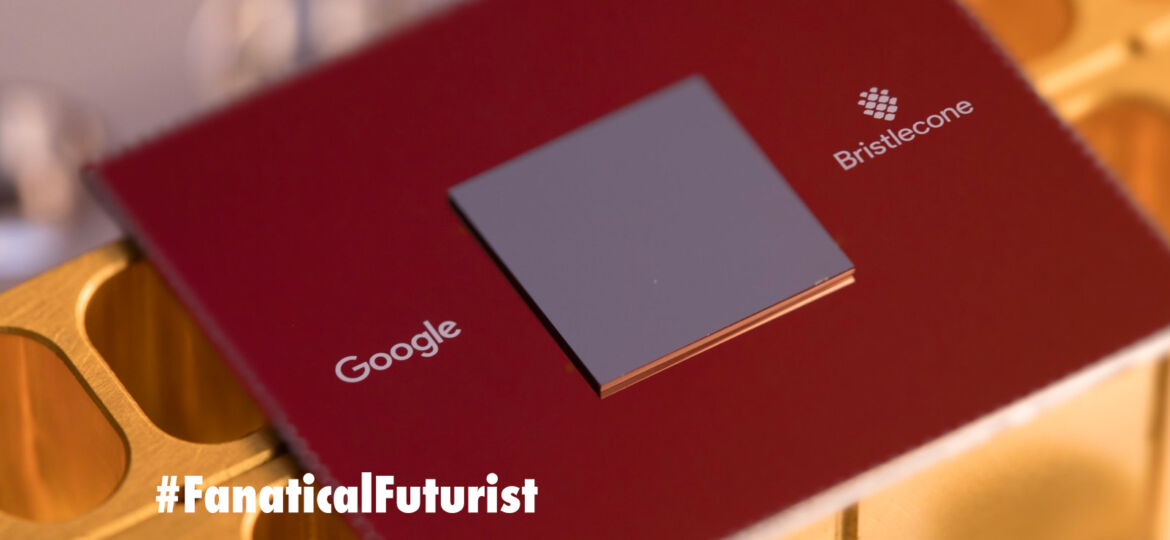
WHY THIS MATTERS IN BRIEF
Quantum computing companies are in a race to reach a major performance milestone called Quantum Supremacy, and Google looks like they might beat the rest of the world to the post.
A few months after Intel revealed their first 17 Qubit quantum chip, IBM announced they’re developing a 50 Qubit chip, and an Australian university revealed their secret sauce for making the world’s first silicon quantum chips, Google’s Quantum AI Lab has revealed it is testing a 72 Qubit quantum processor in its bid to become the first company to demonstrate quantum supremacy – the point at which Quantum computers finally, and, more importantly, officially, become more powerful than today’s most powerful supercomputers at crunching certain tasks.
The chip, known as Bristlecone, was revealed on Monday at the annual American Physical Society meeting in Los Angeles. Given that you only need 49 or 50 Qubits to demonstrate quantum supremacy a 72 Qubit processor should be more than enough to achieve such a major milestone. However, the error rates of such a system, something that so far has been a struggle to overcome as the entangled photons in qubits dissipate if the environment they’re in isn’t just right, must be low enough so that it to be of practical use. Moreover, the ability to test a system for quantum supremacy is confounded by the very fact that classical computers cannot be used to compare like to like test results.
Julian Kelly, a research scientist at the Quantum AI Lab who presented Bristlecone at this week’s American Physical Society meeting, described the progress of their work in a Google Research blog post and in his write up he characterised the new chip as a “a testbed for research into system error rates and scalability of our qubit technology, as well as applications in quantum simulation, optimization, and machine learning.”
According to Kelly, the Bristlecone device uses the same coupling, control, and readout scheme employed on their older 9 Qubit processor, but instead of using a linear array design, they created a square array of 72 Qubits. The crux of the challenge is getting the larger chip to demonstrate similar error rates they were able to achieve on the 9 Qubit hardware, namely 1 percent for readout, 0.1 percent for single-qubit gates, and 0.6 percent for two-qubit gates.
“We believe Bristlecone would then be a compelling proof-of-principle for building larger scale quantum computers,” wrote Kelly.
But demonstrating low error rates is not just a matter of running a few tests on the new chip, they have to tune the whole technology stack, including the system software, the control electronics, and the chip itself. Kelly says getting all these things lined up for their new processor will require some careful engineering and a number of iterations, and such tweaking is likely to take months so don’t expect Google to announce a breakthrough anytime soon.
Nevertheless, as they announced late last year, Kelly is “cautiously optimistic” they’ll be able to demonstrate quantum supremacy with Bristlecone at some point this year, noting that “the experimental demonstration of a quantum processor outperforming a supercomputer would be a watershed moment for our field and remains one of our key objectives.”
















